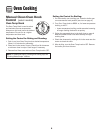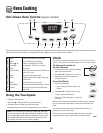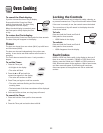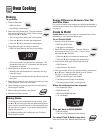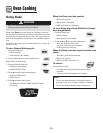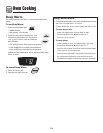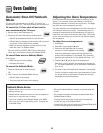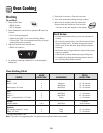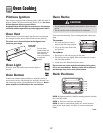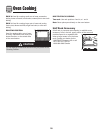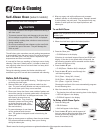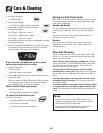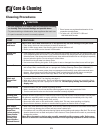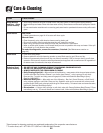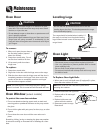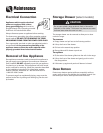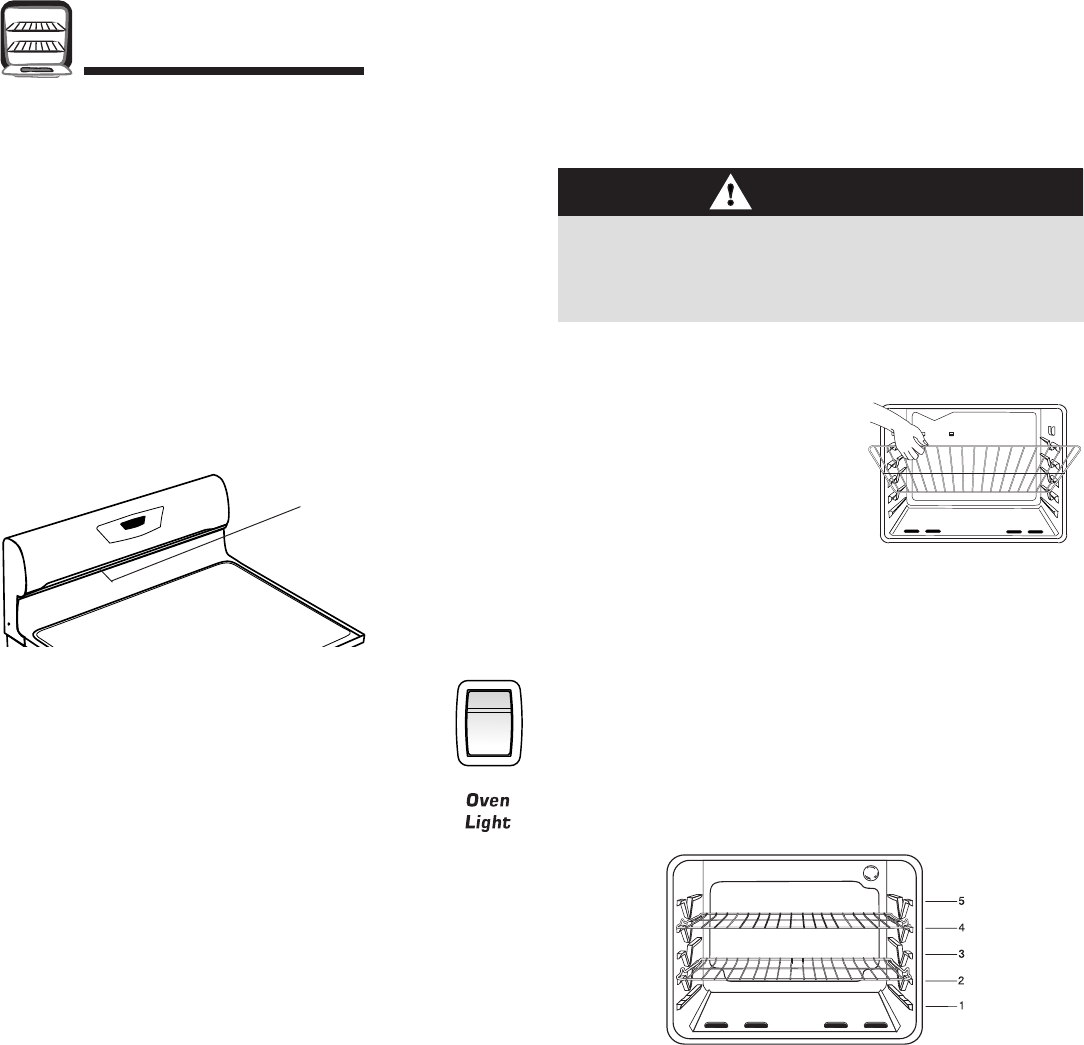
17
Oven Cooking
Do not place
plastics near the
vent opening as
heat from the
vent could distort
or melt the
plastic.
OVEN VENT
LOCATION
Oven Vent
When the oven is in use the area near the vent may become
hot enough to cause burns. Never block the vent opening.
The oven vent is located below the backguard vent
shield on your range.
Oven Light
Press the oven light pad to turn the oven light on
and off.
Oven Bottom
Protect oven bottom against spillovers, especially acidic or
sugary spills, as they may discolor the porcelain enamel. Use
the correct pan size to avoid spillovers and boilovers. Never
place utensils or foil directly on the oven bottom.
Pilotless Ignition
Your range is equipped with pilotless ignition. With this type of
ignition system, the gas automatically shuts off and the oven
will not operate during a power failure.
A lighted match will not light the oven burner. No attempt
should be made to operate the oven during a power failure.
CAUTION
Oven Racks
• Do not attempt to change the rack position when the oven
is hot.
• Do not use the oven for storing food or cookware.
Your oven has two racks. They are designed with a lock-stop
edge.
To remove:
1. Pull rack straight out until it
stops at the lock-stop position.
2. Lift up on the front of the rack
and pull out.
To replace:
1. Place rack on the rack support in the oven.
2. Tilt the front end up slightly. Slide rack back until it clears
the lock-stop position.
3. Lower front and slide back into the oven.
Do not cover an entire rack with aluminum foil or place
foil on the oven bottom. Baking results will be affected
and damage may occur to the oven bottom.
Rack Positions
RACK 5 (highest position): Used for toasting bread or broiling
thin, non-fatty foods.
RACK 4: Used for most two-rack baking.
RACK 3: Used for most baked goods on a cookie sheet or
jelly roll pan, layer cakes, fruit pies, or frozen convenience
foods.
cont.



